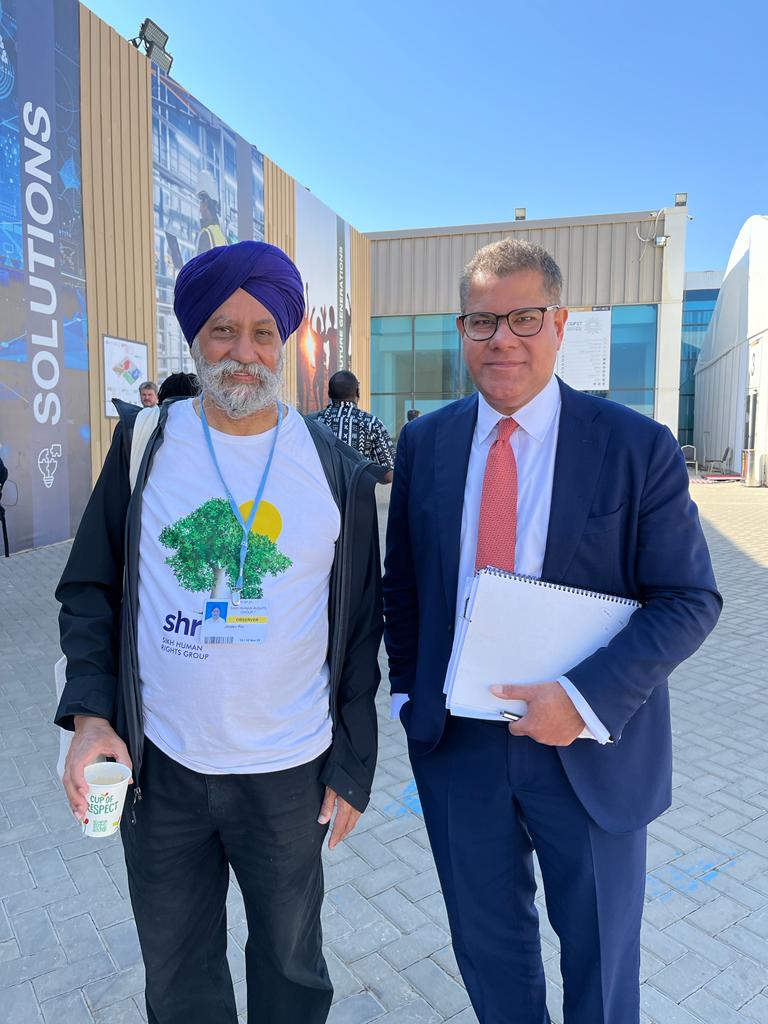SHRG at COP27

The hosting of COP27 in the green city of Sharm El-Sheikh this year marks the 30th anniversary of the adoption of the United Nations Framework Convention on Climate Change. In the thirty years since the world has come a long way in the fight against climate change and its negative impacts on our planet; we are now able to better understand the science behind climate change, better assess its impacts, and better develop tools to address its causes and consequences.

Thirty years and twenty-six COPs later, we now have a much clearer understanding of the extent of the potential climate crisis and what needs to be done to address it effectively. The science is there and clearly shows the urgency with which we must act regarding rapidly reducing emissions of greenhouse gases, taking necessary steps to assist those in need of support to adapt to the negative impacts of climate change, and finding the appropriate formula that would ensure the availability of requisite means of implementation that are indispensable for developing countries in making their contributions to this global effort, especially in the midst of the successive international crises, including the ongoing food security crisis exacerbated by climate change, desertification and water scarcity, especially in Africa that suffers the most impacts.
- Loss and Damage: Small win, but the fight continues
Thanks to unwavering efforts from vulnerable countries, activists and civil society, COP27 has committed to create a loss and damage fund to support the most impacted communities of climate change. The breakthrough deal came as costs from extreme weather soar to over $200 billion annually. The fight is not over: details on who will contribute to the fund or on the accessibility to the financial arrangements will have to be negotiated in the upcoming years. - Fossil fuel loopholes for petro-states and industry
COP27 started to address the symptoms of the climate crisis, but did little to address its causes. More fossil fuels will mean more loss and damage. The scale of influence of the fossil-fuel industry and its supporting states was on full display. At last minute “low emissions” was added to language about renewables being the best solution to the energy crisis, creating a loophole for petro-states and the fossil fuel industry. This trend cannot continue in the United Arab Emirates next year. - Mitigation & Energy ends in disappointment: Despite a last-minute push from the High Ambition Coalition to strengthen the coal phase down text to expand to all fossil fuels, the final COP27 outcome on energy is a disappointment that does not bring us any closer to addressing the climate crisis. The key language on accelerating efforts on coal phase down and fossil subsidy phase out are a cut and paste of commitments in the Glasgow Climate Pact. Renewable energy was positively mentioned, including the USD 4 trillion per annum investment required by 2030 to reach net zero emissions by 2050.
- 1.5°C: All eyes on biodiversity COP: But Sharm el Sheikh’s failure to move on emissions occurred even though the world has experienced politics-altering climate impacts such as flooding in Pakistan and Nigeria. 1.5°C was referenced in the deal, but only recognition of the goal. Pathways and plans to actually achieve it were absent. Holding warming to this limit will reduce the suffering of much of the world – what matters is real, rapid emissions cuts. We need leaders to break from the fossil-fuel industry once and for all. We cannot reach 1.5°C without protecting nature, and at the Biodiversity COP15 next month world leaders must get back on track by agreeing to an ambitious global deal for nature.
- Africa: short-changed: These talks were billed as the African COP, held in the most climate vulnerable continent. But sufficient new finance was not generated for vulnerable countries. Countries were urged to scale adaptation financing but no longer double it. The final deal does not reflect the urgency needed to support adaptation efforts worldwide, but in particular in the most affected regions.

Watch our statement here
COP27 had a GenderDay on the second Monday and the common theme was that women are a solution to climate change not just the victims who need saving and therefore they need to be at the table making the decisions and they need to be in charge of the finances and resources.
Yet how can women/people who menstrual be at the table if they have to miss school for potential 7 days once a month/ cycle. Menstrual products are not luxury items and yet most of the word are paying the luxury/ tampon tax.
A bathroom is 100% prepared for men and 50% prepared for a woman. We need menstrual products in all public places for free but we also need to invest in sustainable products like @wearefluus so we are not solving one problem and causing another.
I raised this issue at the Nordic/ African leaders: why gender is the key to the green transition. The panel was the representative of Norway, of Finland and of Kenya and the executive director of the UN women. The Nordic countries are seen as role models in gender progression and inclusion yet they have the highest tax on menstrual items.
Speaking with the Finish representative she mentioned how she had previously tried to reduce the luxury tax from 24% to 10% but it was rejected as they said if they remove the tax on these items then they would be expected to do the same on loads of other items. Note much of the world don’t tax viagra and hair-loss cream. Menstrual items are health items not luxury items and they are just some of the resources needed for women to be able to be equally involved in decisions that impact our planet.
